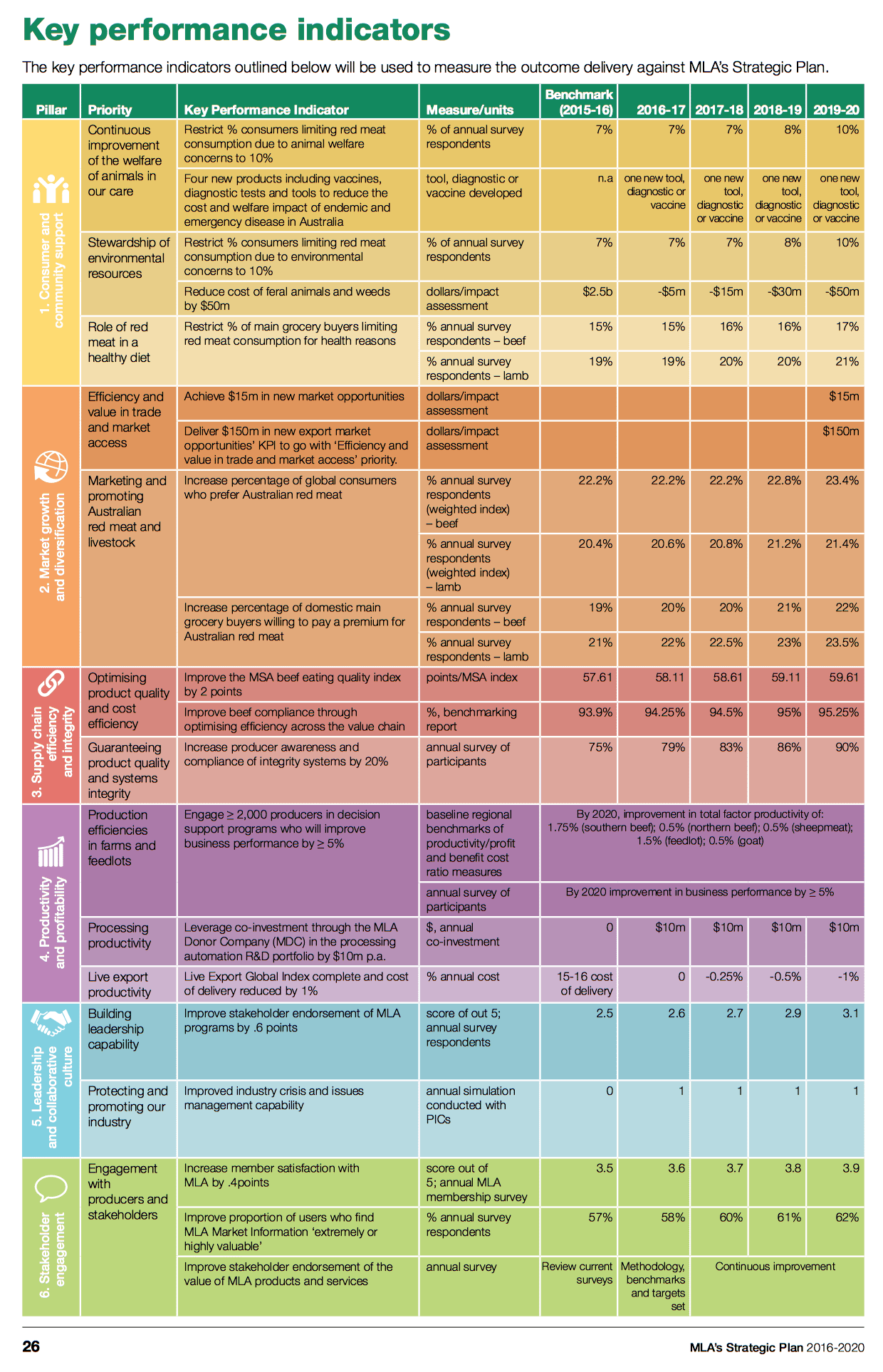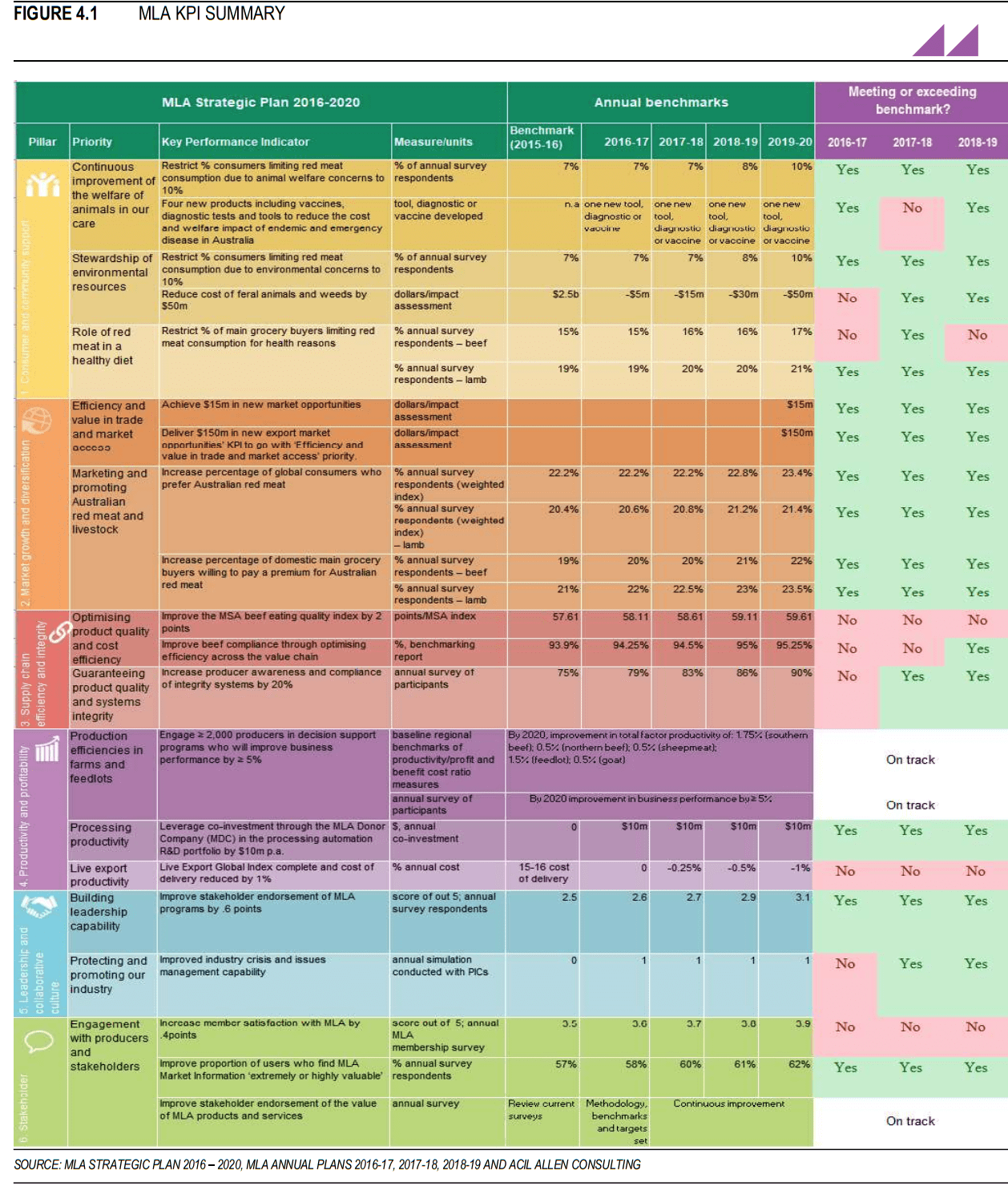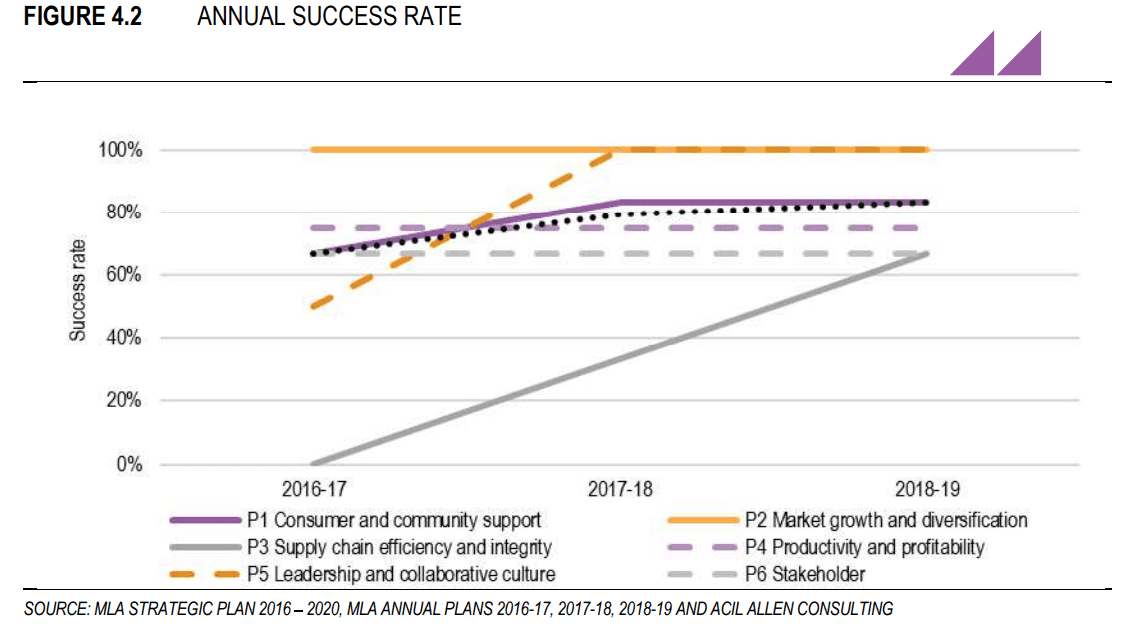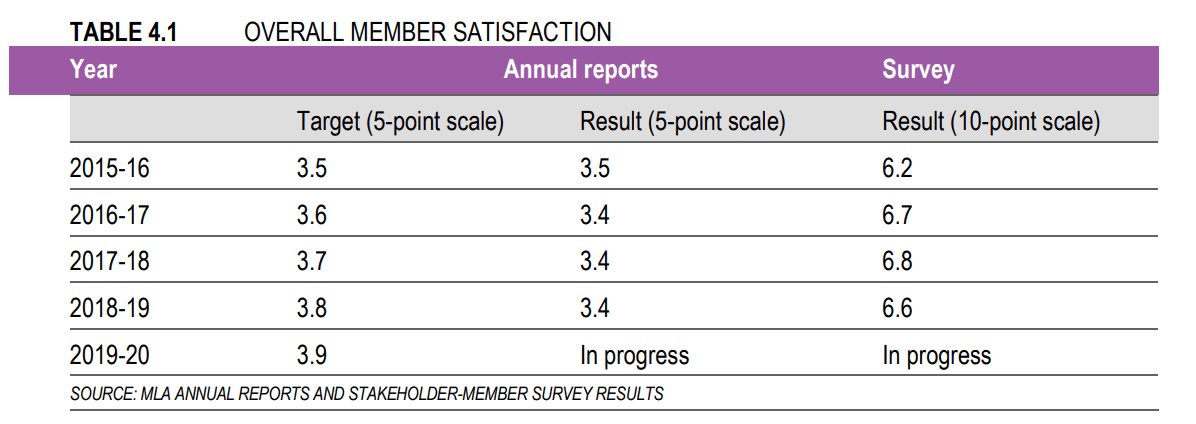THE release of Meat & Livestock Australia’s Strategic Plan 2025 today effectively draws the curtain on its previous five year strategic plan, released in 2016.
In that plan MLA committed to achieve 24 Key Performance Indicators by 2020, listed below:

Click on image to enlarge, or view in original document on the MLA website here
So, five years on, how did MLA go?
ACIL Allen assessed this in its independent review of MLA’s performance from 2016-20, released in late April.
The consultancy went through each of the 24 KPIs line by line.
It concluded that MLA and its subsidiaries had “by and large” met the performance indicators, milestones and metrics set for the organisations.
14 of the 24 KPIs relied on surveys of either stakeholders, members or consumers to measure.
The ACIL Allen review, which appears to draw from survey results reported in MLA’s annual reports over the five year period and its own consultations with industry stakeholders, assessed MLA’s average success rate at 76 per cent, as documented in its KPI scorecard below:

Click on image to enlarge or click here to view in report on ACIL Allen website.
ACIL Allen said MLA met or exceeded its annual benchmarks on 55 occasions and failed to meet its benchmarks on 17 occasions during the five year review period.
The average success rate over the three years for each pillar is depicted in the chart below:
MLA delivered most success in KPIs related to market growth and diversification, leadership and collaborative culture and supply chain efficiency and integrity.
However, of the 24 KPIs, MLA failed to meet the benchmark in three KPIs during the review period.
These were:
- Improve the MSA beef eating quality index to 59.11: Although the MSA Index increased during the review period, it has not met its targeted benchmark. In 2016-17 the Index averaged 57.59 (an increase of 0.07 on 2015-16). In 2017-18 it increased by another 0.19 to 57.78. The Index was maintained but not improved in 2018-19, as a result of an increase in volume and variation of cattle being MSA graded.
- Live Export Global Index complete and cost of delivery reduced by 1%: A project to develop the Live Export Global Index was underway in 2016-17. By 2017-18 the Index was developed, but the ‘cost of delivery’ data was not sufficient to validate the index, especially for overseas markets. MLA was working with live exporters to collect more reliable data for both domestic and export situations. However, in 2018-19 the Global Index project was terminated. MLA advised that data collection is nevertheless ongoing for an alternative approach.
- Increase member satisfaction with MLA by .4 points: Overall members’ satisfaction with MLA has remained below targeted benchmarks. Under this KPI, the 2015-16 benchmark of 3.5 (out of 5 points) was set to improve by 0.1 each year over four years to 3.9 in 2019-20.
During the review period, ACIL Allen said surveys of member satisfaction with MLA showed increases for two years and a decline in the last reported year.
The 2018-19 measure was higher than the year preceding this review period but lower than MLA’s internal benchmark of 7.0. “Together the results indicate that overall stakeholder satisfaction is holding with some inter-year variability. The results are below the targets MLA has imposed on itself and this ambition should be sustained,” the report noted.
ACIL Allen also found that one other KPI worsened over time – one that aimed to restrict the percentage of main grocery buyers limiting beef meat consumption for health reasons.
However the reviewer expressed the view that this KPI was “largely outside MLA’s direct control or sphere of influence”: “Changing expectations and preferences for red meat are an important aspect which many of MLA’s marketing, consumer education/campaigning activities seek to address, but it is difficult to measure MLA’s influence on these trends because the indicators are likely to lag and may have cyclical dimensions that MLA cannot fully mitigate”.
The ACIL Allen review also concluded the vast majority of funding is being “invested into activities that produce successful results”.





ACIL Allen does a lot of consultancy/contract work for MLA. Marking it’s own homework?